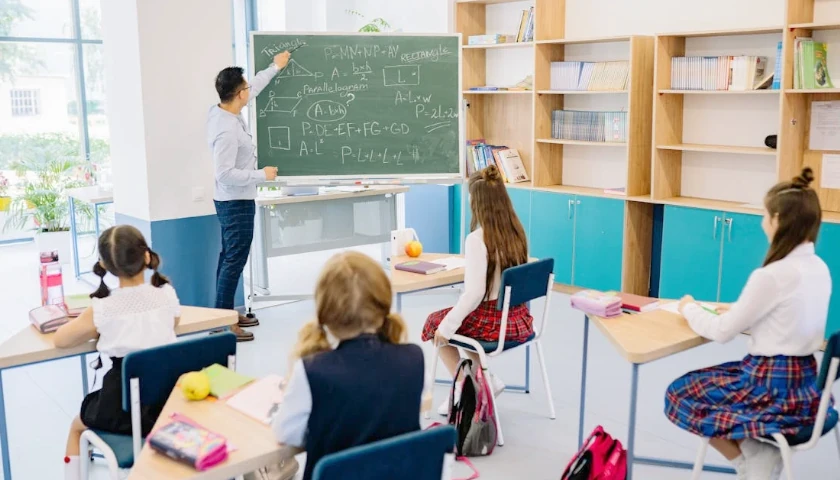by Anthony Gockowski
Half of Minnesota’s students can’t read at grade level.
At a recent press conference, legislative Republicans said this is because the education establishment bought into the “whole language” and “balanced literacy” approaches to reading.
They want to see increased funding for schools, teacher training programs, and tutors to invest in the science of reading, which is “explicit, systematic, cumulative instruction” based on phonemic awareness, phonics, vocabulary, fluency and comprehension, said State Rep. Patricia Mueller, R-Austin.
“This means there is a letter by letter processing of a word rather than ‘whole language.’ Students do not learn to read innately. We do not learn simply by being surrounded by literature,” said Mueller, who has a master’s degree in curriculum and instruction with an emphasis in literacy and recently completed a doctorate in education.
She said phonics, the “bedrock” of the science of reading, is most often the element that is excluded from teacher prep programs.
“So even if a school is teaching four out of five [elements], leaving out that fifth one is devastating,” she explained. “Not knowing how to read, being illiterate, is a health crisis. It is a public safety crisis.”
The GOP’s proposal would establish a special revenue fund, similar to a disaster relief fund, from which schools can apply to cover costs related to aligning their curriculum and instructional practices to the science of reading, they explained in a press release.
Democrats have a bill that aims to achieve similar goals. During a recent committee hearing, Republicans said the bill provides schools with too much latitude to “continue doing what they’re already doing.”
The bill, for instance, would require districts to provide teachers with training “that is evidence-based or based on the science of reading.”
“I can only assume this is just a lot of outside pressure, but in your bill you have an ‘or.’ Science of reading or evidence-based,” said Mueller. “I see by adding that ‘or’ … that’s opening up some doors that I think should be closed.”
She said the language of the bill leaves room for the “three-cueing” system, which teaches students to look at context and sentence structure to identify a word, according to Education Week. She said Mississippi forbade teachers from using this system and saw great success.
“When you are a reader that is already proficient in reading, yes, you use that,” she said. “Learning how to speak is innate; learning how to read is not innate. It has to be systematically taught that we do read one letter at a time.”
State Rep. Peggy Bennett, R-Albert Lea, echoed Mueller’s comments, saying “people [will] look for loopholes” in the bill.
“Literacy is learning; it’s that simple,” Bennett, a former teacher, said in a press release. “A large number of schools and teachers have been greatly misled by curriculum companies selling a whole language or ‘balanced literacy’ program that schools were told was ‘research-based.’ Catastrophic reading scores for Minnesota’s students have been the result.”
Republicans eventually agreed to advance the bill to its next committee stop after bill author, State Rep. Heather Edelson, DFL-Edina, said she plans to fine-tune the language of the bill. Both sides expressed optimism that the bill in its final form could be passed with bipartisan support.
Other states are moving to adopt the science of reading approach, such as Ohio, where Gov. Mike DeWine has proposed a bill that would require teachers to use phonics-based materials.
“The jury has returned. The evidence is clear. The verdict is in,” he said. “There is a great deal of research about how we learn to read. And today, we understand the great value and importance of phonics.”
– – –
Anthony Gockowski is Editor-in-Chief of Alpha News. He previously worked as an editor for The Minnesota Sun and Campus Reform, and reported for The Daily Caller.
Photo “Children Reading a Book” by Tima Miroshnichenko.





